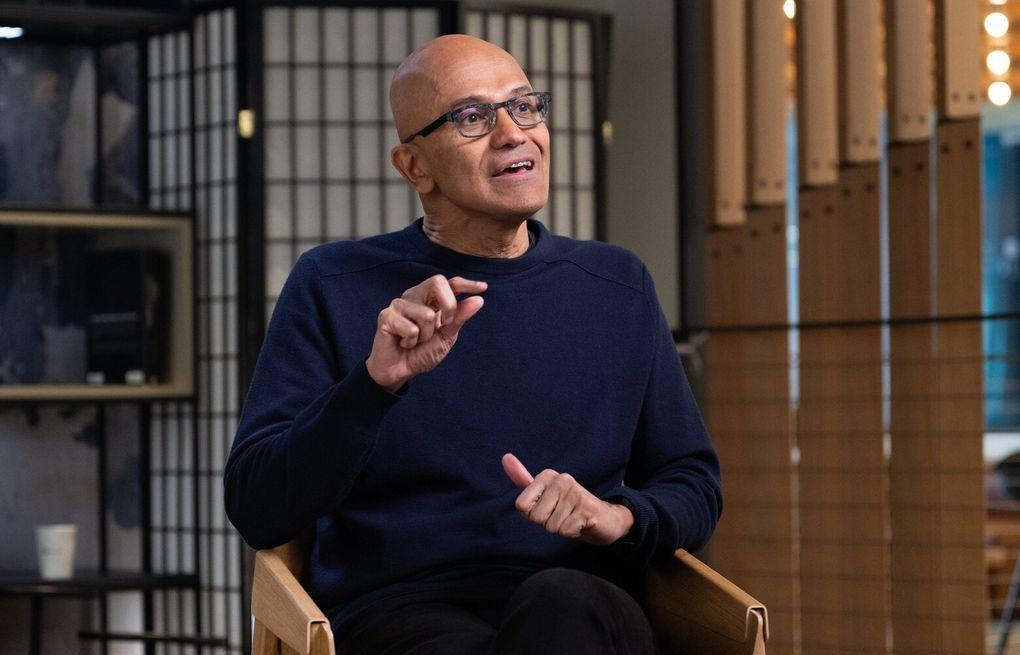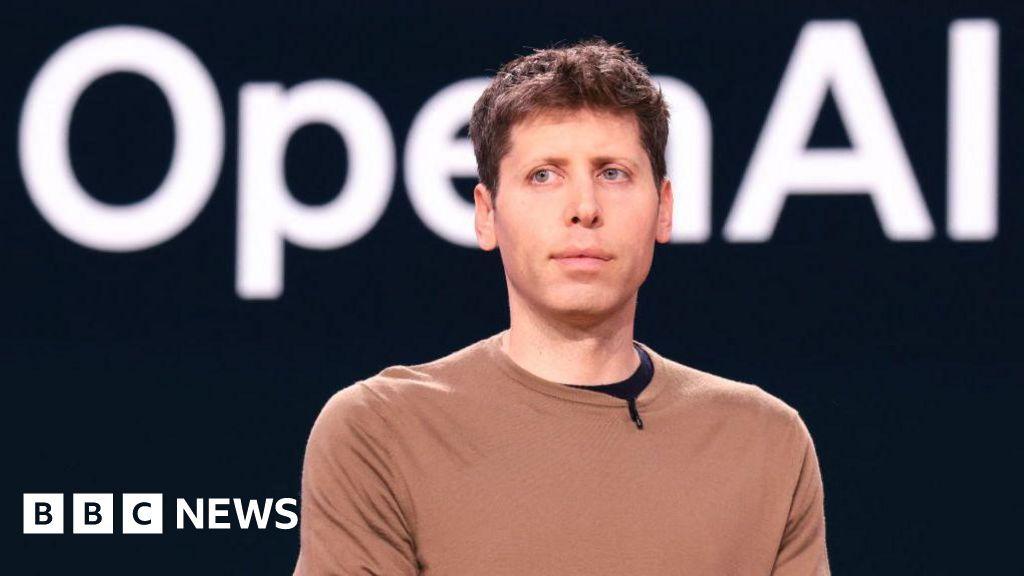The Essence of Devotion and Self-Realization: Insights from Hindu Philosophy
4 Sources
4 Sources
[1]
Devotion
Nitin Prem Gambhir was born in New Delhi, India. He grew up primarily in India (playing lots of cricket). Since he also spent a few years in Oxford, United Kingdom (where he also played lots of cricket). In the mid-nineties, Nitin and his family migrated to Fremont, California (where there was not enough cricket despite there being a lot of Indians). During his first few years in the United States, he experienced a typical immigrant life -- managing two jobs and attending community college. He then moved to Los Angeles to attend UCLA where he earned a Bachelor of Science degree in Computer Science and Engineering. Unsatisfied, he went on to obtain a Master of Science degree in Computer Science only to realize later that he no longer wanted to be an engineer. He decided to be a lawyer instead. In law school, he focused on Intellectual Property law. After graduating, he worked in private practice as an intellectual property litigator. He was most recently a partner at a big international law firm. He is focused on pursuing his other dreams now. This bio was not written by AI. He wrote it himself, but prefers to sketch and write poems instead. LESS ... MORE
[2]
Gita Saar
Nitin Prem Gambhir was born in New Delhi, India. He grew up primarily in India (playing lots of cricket). Since he also spent a few years in Oxford, United Kingdom (where he also played lots of cricket). In the mid-nineties, Nitin and his family migrated to Fremont, California (where there was not enough cricket despite there being a lot of Indians). During his first few years in the United States, he experienced a typical immigrant life -- managing two jobs and attending community college. He then moved to Los Angeles to attend UCLA where he earned a Bachelor of Science degree in Computer Science and Engineering. Unsatisfied, he went on to obtain a Master of Science degree in Computer Science only to realize later that he no longer wanted to be an engineer. He decided to be a lawyer instead. In law school, he focused on Intellectual Property law. After graduating, he worked in private practice as an intellectual property litigator. He was most recently a partner at a big international law firm. He is focused on pursuing his other dreams now. This bio was not written by AI. He wrote it himself, but prefers to sketch and write poems instead. LESS ... MORE
[3]
Nitin Prem Gambhir Blog - Times of India Blog
Nitin Prem Gambhir was born in New Delhi, India. He grew up primarily in India (playing lots of cricket). Since he also spent a few years in Oxford, United Kingdom (where he also played lots of cricket). In the mid-nineties, Nitin and his family migrated to Fremont, California (where there was not enough cricket despite there being a lot of Indians). During his first few years in the United States, he experienced a typical immigrant life -- managing two jobs and attending community college. He then moved to Los Angeles to attend UCLA where he earned a Bachelor of Science degree in Computer Science and Engineering. Unsatisfied, he went on to obtain a Master of Science degree in Computer Science only to realize later that he no longer wanted to be an engineer. He decided to be a lawyer instead. In law school, he focused on Intellectual Property law. After graduating, he worked in private practice as an intellectual property litigator. He was most recently a partner at a big international law firm. He is focused on pursuing his other dreams now. This bio was not written by AI. He wrote it himself, but prefers to sketch and write poems instead. Less
[4]
Break free
Nitin Prem Gambhir was born in New Delhi, India. He grew up primarily in India (playing lots of cricket). Since he also spent a few years in Oxford, United Kingdom (where he also played lots of cricket). In the mid-nineties, Nitin and his family migrated to Fremont, California (where there was not enough cricket despite there being a lot of Indians). During his first few years in the United States, he experienced a typical immigrant life -- managing two jobs and attending community college. He then moved to Los Angeles to attend UCLA where he earned a Bachelor of Science degree in Computer Science and Engineering. Unsatisfied, he went on to obtain a Master of Science degree in Computer Science only to realize later that he no longer wanted to be an engineer. He decided to be a lawyer instead. In law school, he focused on Intellectual Property law. After graduating, he worked in private practice as an intellectual property litigator. He was most recently a partner at a big international law firm. He is focused on pursuing his other dreams now. This bio was not written by AI. He wrote it himself, but prefers to sketch and write poems instead. LESS ... MORE
Share
Share
Copy Link
Exploring the concepts of devotion, self-realization, and breaking free from attachments as discussed in Hindu philosophy, particularly drawing from the teachings of the Bhagavad Gita.

The Power of Devotion in Hindu Philosophy
In Hindu philosophy, devotion or 'bhakti' plays a central role in spiritual growth and self-realization. As explored in recent discussions, devotion is not merely an emotional attachment to a deity but a profound connection to the divine that transforms the devotee's entire being
1
. This devotion is characterized by a sense of surrender, love, and dedication to a higher power or ultimate reality.Gita Saar: The Essence of the Bhagavad Gita
The Bhagavad Gita, a sacred text in Hinduism, offers profound insights into the nature of reality, duty, and self-realization. The 'Gita Saar' or essence of the Gita emphasizes the importance of performing one's duties without attachment to the results
2
. This teaching encourages individuals to act with a sense of purpose and dedication while maintaining inner detachment, fostering spiritual growth and mental equilibrium.The Journey of Self-Discovery
Hindu philosophy places great emphasis on the journey of self-discovery and self-realization. This path involves introspection, meditation, and the cultivation of wisdom. Recent writings by spiritual thinkers have explored various aspects of this journey, highlighting the importance of understanding one's true nature beyond the limitations of the ego
3
. This process of self-discovery is seen as essential for achieving lasting peace and fulfillment.Breaking Free from Attachments
A key aspect of Hindu spiritual practice involves breaking free from attachments that bind one to the cycle of suffering. This concept, explored in recent discussions, emphasizes the need to let go of material desires and ego-driven pursuits
4
. By cultivating detachment, individuals can experience greater freedom, peace, and alignment with their true nature.Related Stories
Integration of Philosophical Concepts
The interconnectedness of these concepts – devotion, duty, self-realization, and detachment – forms a comprehensive framework for spiritual growth in Hindu philosophy. Devotion provides the emotional and spiritual fuel for the journey, while the teachings of the Gita offer practical guidance on navigating life's challenges. The process of self-discovery leads to a deeper understanding of one's true nature, and the practice of detachment helps in overcoming obstacles to spiritual progress.
Contemporary Relevance
In today's fast-paced and often materialistic world, these ancient teachings continue to offer valuable insights. They provide a roadmap for finding inner peace, purpose, and fulfillment amidst the complexities of modern life. By integrating these philosophical concepts into daily life, individuals can work towards achieving a balance between worldly responsibilities and spiritual aspirations.
References
Summarized by
Navi
[1]
[2]
[4]
Related Stories
The Spiritual Journey: Exploring Divine Play, Oneness, and Inner Strength
14 Jul 2024

Satya Nadella codes cricket app using AI to pick India's greatest test team
12 Dec 2025•Entertainment and Society

Sam Altman's AI-Generated Cricket Avatar Sparks Speculation on OpenAI's India Strategy
03 Apr 2025•Technology

Recent Highlights
1
ByteDance's Seedance 2.0 AI video generator triggers copyright infringement battle with Hollywood
Policy and Regulation

2
Demis Hassabis predicts AGI in 5-8 years, sees new golden era transforming medicine and science
Technology

3
Nvidia and Meta forge massive chip deal as computing power demands reshape AI infrastructure
Technology





